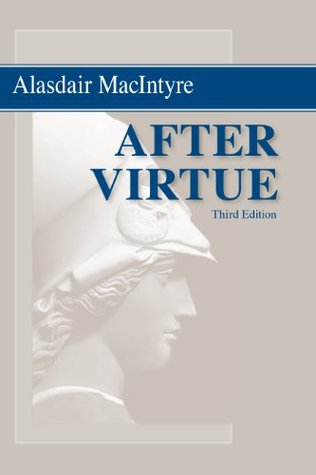First Aristotle takes it that the possibility of achieving the human good, eudaimonia, can be frustrated by external misfortune. The virtues, he grants, will enable one to a large degree to cope with adversity, but great misfortunes such as Priam’s exclude one from eudaimonia—as do ugliness, low birth and childlessness. What matters in the medieval perspective is not only the belief that no human being is excluded from the human good by such characteristics, but also the belief that no evil whatsoever that can happen to us need exclude us either, if we do not become its accomplice. Secondly
...more
This highlight has been truncated due to consecutive passage length restrictions.


